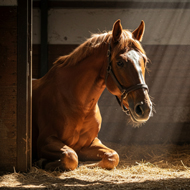Government urged to progress puppy smuggling bill
A bill that would prevent puppy smuggling has passed its second reading.
The British Veterinary Association (BVA) is calling on the UK government to tackle the unlawful smuggling of puppies into the country.
It comes as statistics from BVA's Voice of the Veterinary Profession revealed that one in five veterinary surgeons were treating a puppy which they believed had been imported illegally.
Seventy-nine per cent of veterinary surgeons reported becoming suspicious due to a client's explanation of how or where the puppy was acquired. Half of veterinary surgeons who had seen an illegally imported puppy said that the puppy was too young to have been imported legally into the country.
A third of veterinary surgeons reported finding a foreign microchip in a young puppy, while 30 per cent said the puppy's age hadn't matched their passport.
The most common breed that veterinary surgeons have raised concerns about was the French bulldog. BVA says that 48 per cent of suspicious puppies had been French bulldogs.
The calls have come as pressure rises on the UK government to progress the Animal Welfare (Dogs, Cats and Ferrets) Bill through Parliament.
The legislation would introduce measures to address illegal puppy smuggling, as well as banning the import of pets with illegal mutilations such as cropped ears. BVA says that it is also important for protecting public health, preventing rabies from being imported into the country.
The Bill passed its second reading in the Commons in November 2024, but is still awaiting a date for the committee stage.
On 2 April, MP and veterinary surgeon Danny Chambers hosted a roundtable in Parliament to highlight the importance of the legislation. BVA says that Dr Chambers has the broad support of veterinary professionals, animal welfare charities, parliamentarians and the general public.
Elizabeth Mullineaux, BVA president, said: “These new figures from our members who work in small animal practice show that puppy smugglers are continuing to use unscrupulous methods to bring puppies into the country and duping new owners into buying sick or poorly socialised pets.
“Illegally imported puppies have often been poorly bred, without the correct vaccinations or necessary health checks needed, which can result in life-threatening illnesses for the pups and heartache for their new owners.”
Image © Shutterstock



 Zoetis UK has called on horse owners to complete a short online survey about their horse's behaviours.
Zoetis UK has called on horse owners to complete a short online survey about their horse's behaviours.